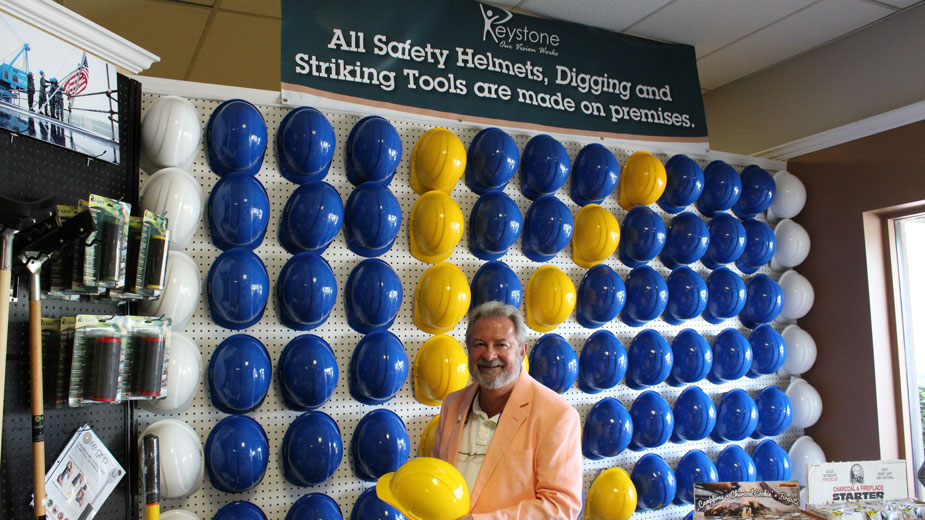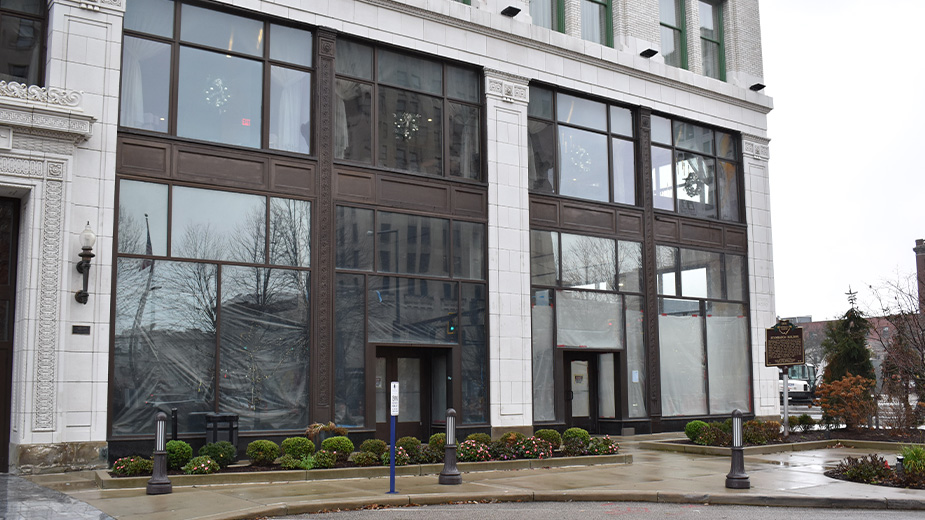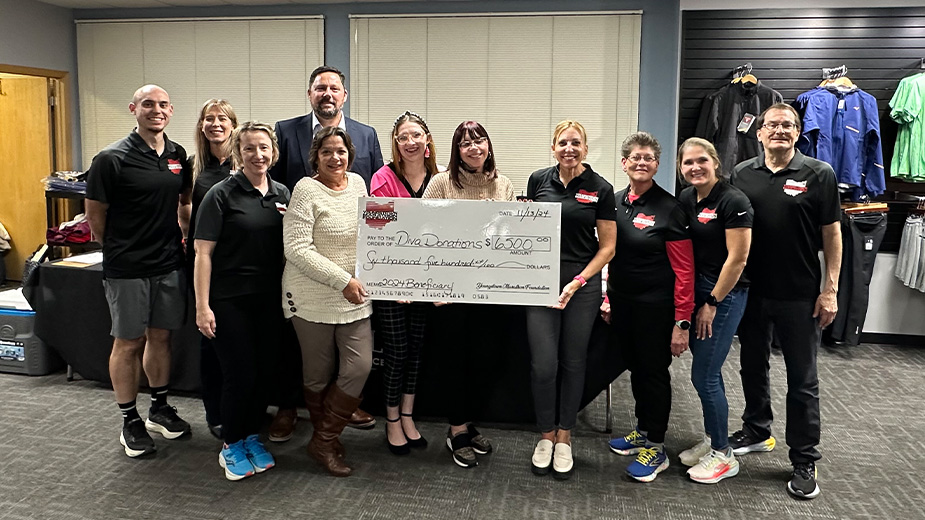Keystone Blind Association Shows Off Its New Home
HERMITAGE, Pa. – The list of how the Keystone Blind Association has helped its clients is long. So long, in fact, that chief services officer Ann Peterson stops several times to see if you’re willing to keep listening.
There are those who must learn how to use a cane to walk again. Those who need a new phone or laptop with specially designed apps for the visually impaired and blind. Students who must be taught to use digital textbooks or how to read Braille.
A few weeks ago, the staff at Keystone made a double-sized set of playing cards so a client could keep playing solitaire, his favorite pastime. Last year, an Amish man came in and learned to crochet. Then he made each member of his family a matching set of hat and gloves for Christmas.
“They absolutely loved it,” Peterson said. “What we’re trying to do is get people to the highest level of independence.”
And with the opening of its new headquarters, Keystone, which began operations in 1947, can provide more services to more people, she said at the grand opening Thursday. The new headquarters, 3056 E. State St., consolidates two buildings and puts the association on the main thoroughfare through the commercial district.
“Since we’ve been here, we are seeing a huge increase in people coming in and inquiring about our services,” said President and CEO Jonathan Fister. “If you’re out of sight, people forget about you. Now, people go past the Blind Association and think about their grandmother, their grandfather, their cousin and stop in to see what we have.”
The 42,000-square-foot space sits along a Shenango Valley Shuttle Service route, allowing clients to get to and from the building on their own, further increasing the independence clients can build.
Included on Keystone’s list of services are rehabilitation, blindness prevention, transition services for students moving to college, transportation, life skills training and employment.
Behind the headquarters’ office space, a renovated warehouse houses shredders and others tools. There employees shred sensitive documents for area businesses and manufacture sledgehammers, pitchforks, shovels, rakes and hardhats. Employees also operate a storefront where they sell janitorial equipment and other equipment made at Keystone.
Jobs for clients begin at minimum wage with some employees earning up to $18 per hour if they’ve worked at Keystone long enough. The association has contracts with both the federal and state governments to provide equipment. Sailors on three Navy aircraft carriers wear hardhats made by visually impaired staff, Fister said, and the State Department recently ordered 1,600 sledgehammers for delivery to Israel.
“None of this is make-work,” he said. “These are real jobs making real, high-quality things. When our products are used by our war fighters, there’s a great deal of pride in that.”
During the open house, the manufacturing center was dedicated to former Keystone chief operating officer Perry Templeton, who “brought Keystone into the modern world” and helped build the employment program.
“He was a visionary. He set all of this in place and we’ve been able to take his vision and make it bigger and better than I’m sure he imagined at the time,” Fister said.
As part of the move into the former furniture store, Keystone had to repaint and install new lights in the warehouse, making it easier for employees to see. The project was partially funded by a grant from the National Industries for the Blind.
“This area is so much better. I can maneuver around in here. Plus, it’s a lot more open with more space for all of our stuff,” says Melony Weiser, an employee at Keystone with retinitis pigmentosa. “If it wasn’t for Keystone, I couldn’t get a job anywhere else. My vision is that bad — I can’t get a job outside in the community.”
Retinitis pigmentosa is a degenerative eye disease that wears down photoreceptors in the sufferer’s retina.
Ultimately, Fister and Peterson agree, it’s those kinds of responses that Keystone aims to deliver to its 700 employees and thousands of clients statewide – Keystone operates seven agencies across Pennsylvania.
“The things we do are meaningful in people’s lives because it changes their life,” the CEO said. “If you’re able to read your own mail or do your own banking through assistive technology, then you’re not relying on someone else.”
Keystone moved into the building just over a year ago, Fister said, and while it isn’t quite in line with what he and the other workers at the blind association envisioned, it’s certainly much better than the two buildings in a residential area previously occupied.
“We have breathing room right know, but we know that as time goes by we’ll have the room to expand our offerings,” he said. “We’re far from finished. We figure it’s probably five years to flesh out the whole facility and make it exactly what we want. But we couldn’t wait five years to have an open house.”
PIctured: Keystone Blind Association President and CEO Jonathan Fister with equipment manufactured at new headquarters,
Copyright 2024 The Business Journal, Youngstown, Ohio.



